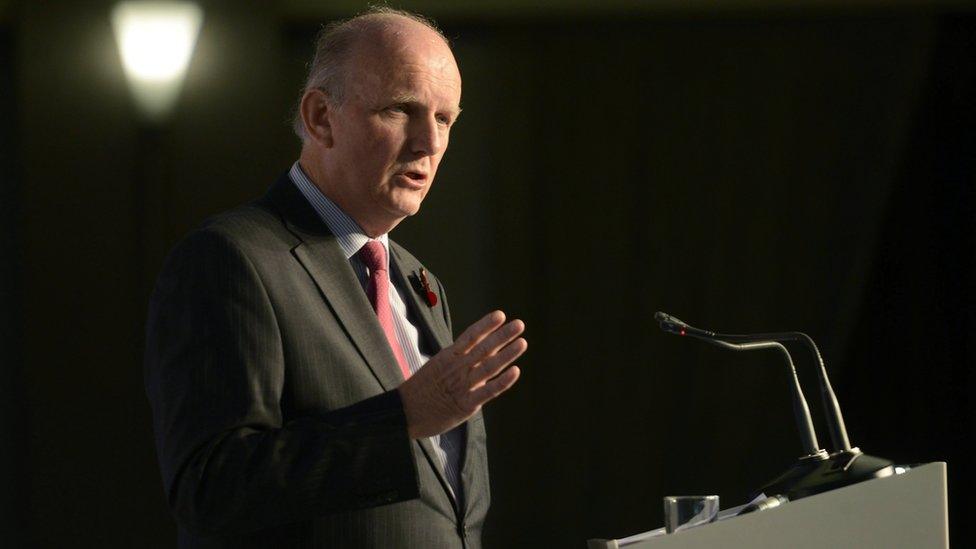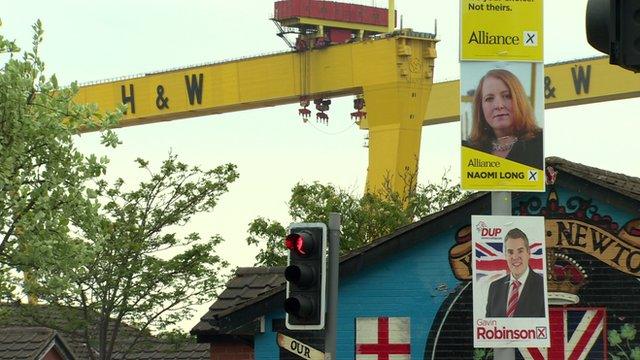New candidates won't warm to talk of election poster ban
- Published
- comments

Michael McGimpsey is likely to continue voicing his views on healthcare in Northern Ireland in his retirement
Earlier this month it was the Social Democratic and Labour Party's Alban Maginness in North Belfast who decided to retire, now it is Michael McGimpsey of the Ulster Unionists in South Belfast.
It is clear this May's Northern Ireland Assembly election will mark a generational change in Northern Ireland politics.
A sizeable number of sitting MLAs have decided to step down, others are looking at the possibility of defeat, and some co-optees who have never fought an election are now facing their first trial by ballot box.
Mr McGimpsey's long career exemplifies the transition in Northern Ireland politics.
He hit the headlines in the 1980s for a legal challenge to the Anglo Irish Agreement highlighting the Irish constitution's territorial claim to Northern Ireland, external.
He was also involved with the Peace Train campaign, external demanding an end to paramilitary violence.
But as a member of the Unionist Labour group, he harbours hopes that left-right politics will come to dominate, and is proud both of being part of the first Northern Ireland's power-sharing executive after the Good Friday Agreement and his years heading up the Department of Health.
Health funding is likely to be a subject he will continue to be vocal about, even if he no longer sits on the benches at Stormont.
Fresh-faced
Just as Mr McGimpsey announced his departure, his former party leader Lord Empey floated the kite of a voluntary ban on election posters.
Ian Paisley once told me that if you knocked a voter's door and they did not know who you were when they opened it, you were on to a loser.
Lord Empey has called for election posters to be banned ahead of the assembly election in May, as BBC News NI's Stephen Walker reports
That is easy to say if you are a big beast like the late Democratic Unionist Party leader or a well known face like the Alliance Party's Naomi Long, who is hoping to return to the fray in May.
But a ban on election posters is a less attractive option if you are contesting your first election.
Given the number of fresh-faced candidates seeking a place at Stormont, it is hardly likely they will opt for anonymity.
Social media may provide a new way to communicate directly to the voters, but it only reaches a section of the electorate.
Traditional Unionist Voice leader Jim Allister also has a point when he argues that any election poster ban is likely to assist the big established parties and militate against smaller parties, who, by virtue of their fewer seats, will get less time then they would like on TV and radio.
So, I would not bet against Martin McGuinness's prediction on BBC Northern Ireland's The View programme that the chances of a voluntary election poster ban being implemented are "zero".
Perhaps the best option would be to concentrate on enforcing the rules that already exist for removing the posters once the contest is over.
- Published29 January 2016
